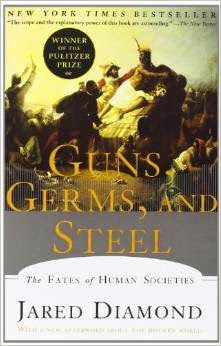Guess what just came in the mail... finally! My $39.00 rebate from Staples!
Now, I applied online for the Staples rebate last November 29. I had gone shopping the day after Thanksgiving, kind of by accident, when I was out for lunch with family and I asked if we could make a quick stop at Staples for a case of printer paper. It is soooo much cheaper to buy by the case, but a case is far too heavy for me to carry home on the bus. This was the first time, ever, that I have shopped on Black Friday! I checked the shelves for prices and discovered a special Black Friday deal: buy a case for $53.99 and get a $39.00 rebate. That brought my net cost for a case of paper down to $14.99, and my per-ream cost down to $1.50! When I'd run out of my last case of paper last fall, the lowest price I'd found was over $6.00 a ream.
Now, the catch was that when I applied for the rebate, I was informed that there would be an 8 to 11 week wait, and they appear to have stretched that out nearly to the maximum. Still, I now have a prepaid Visa holding $39.00 to use wherever I want... groceries, yarn, whatever. I consider that a much better deal than store credit, because I don't shop at Staples all that regularly... just a couple times a year when I need paper.
But there's a bigger principle here... sometimes buying in bulk can save you a lot of money. It sure did this time, and I appreciate it because the costs for my student handouts add up! When shopping, I try to check the unit price information on store shelf price tags, but too often there is very little difference between small and large packages, whether it be food, socks, or office supplies. Occasionally I find things that are actually MORE expensive in bulk, and I'm always deeply offended.
I usually buy the smaller package if the price difference is small. I do this for three reasons:
I guess there is a more fundamental principle here, too. Smart frugality is really all about using the intellect a little more and emotions a little less when making purchases. So don't turn your nose up at Black Friday sales! If I want to do as well as possible with my limited resources, I can't afford to overlook obvious sources of good deals just because the stores are crowded! And actually, it turned out that Staples wasn't any more crowded that Black Friday than any other weekend afternoon. I think the crowds all head for the mall and big-box discount stores like Wal-Mart and Best Buy, not the office supply stores.
Now, I applied online for the Staples rebate last November 29. I had gone shopping the day after Thanksgiving, kind of by accident, when I was out for lunch with family and I asked if we could make a quick stop at Staples for a case of printer paper. It is soooo much cheaper to buy by the case, but a case is far too heavy for me to carry home on the bus. This was the first time, ever, that I have shopped on Black Friday! I checked the shelves for prices and discovered a special Black Friday deal: buy a case for $53.99 and get a $39.00 rebate. That brought my net cost for a case of paper down to $14.99, and my per-ream cost down to $1.50! When I'd run out of my last case of paper last fall, the lowest price I'd found was over $6.00 a ream.
Now, the catch was that when I applied for the rebate, I was informed that there would be an 8 to 11 week wait, and they appear to have stretched that out nearly to the maximum. Still, I now have a prepaid Visa holding $39.00 to use wherever I want... groceries, yarn, whatever. I consider that a much better deal than store credit, because I don't shop at Staples all that regularly... just a couple times a year when I need paper.
But there's a bigger principle here... sometimes buying in bulk can save you a lot of money. It sure did this time, and I appreciate it because the costs for my student handouts add up! When shopping, I try to check the unit price information on store shelf price tags, but too often there is very little difference between small and large packages, whether it be food, socks, or office supplies. Occasionally I find things that are actually MORE expensive in bulk, and I'm always deeply offended.
I usually buy the smaller package if the price difference is small. I do this for three reasons:
- Many products diminish in quality with time. We know that about things like eggs and potato chips. But it can be true in less obvious cases. I bought a big bag of cheap ball point pens once, but by the time I had only half-finished the bag, the ink had dried up in the remaining pens.
- Storage can be inconvenient. I don't have a lot of storage space in my house, so if I buy a large amount of something I have to find a place to keep it. This may be worth the trouble and clutter for some things, like the printer paper. Probably not for things where unit savings are small.
- I tend to use more of things when I have a big supply. This feeling of abundance comes over me, and I just... splurge a little, I guess. It's a nice feeling to have more than I need, but... there is a cost to it.
I guess there is a more fundamental principle here, too. Smart frugality is really all about using the intellect a little more and emotions a little less when making purchases. So don't turn your nose up at Black Friday sales! If I want to do as well as possible with my limited resources, I can't afford to overlook obvious sources of good deals just because the stores are crowded! And actually, it turned out that Staples wasn't any more crowded that Black Friday than any other weekend afternoon. I think the crowds all head for the mall and big-box discount stores like Wal-Mart and Best Buy, not the office supply stores.


